More On: connecticut
A new video shows the mother of the Connecticut boy who is accused of setting 6-year-old Dominick Krankall on fire
Bobby Valentine announces he’s running for mayor in Connecticut hometown
‘Murder on Middle Beach’ director uncovers his family’s dark legacies in doc
Tommy Hilfiger flipping eighth Connecticut home for $47.5M
Spotted Pig chef pops up in historical Connecticut hotel
"When I called, she said, ‘Mom’s dead.’ She was crying. She said, ‘Someone killed her.’ ”
Madison Hamburg was on a lunch break during film school on March 3, 2010, when the call came.
“I was at Chik-fil-A with a bunch of friends, and my phone was broken that day. One of my best friends reached out to another friend, who was with me, to say my sister really needed to talk to me.” Hamburg’s younger sibling, Ali, had sent word that Madison shouldn’t call back until he was sitting down. “I thought she had gotten in trouble or something,” he told The Post. “And when I called, she said, ‘Mom’s dead.’ She was crying. She said, ‘Someone killed her.’ ”
Hamburg, now 29 and living in Williamsburg, Brooklyn, thought it was a mistake, or a bad joke. “My initial response, which I know now is a part of grief, was, ‘That can’t be right. She’s not dead. Put someone else on the phone. This isn’t funny.’ ”
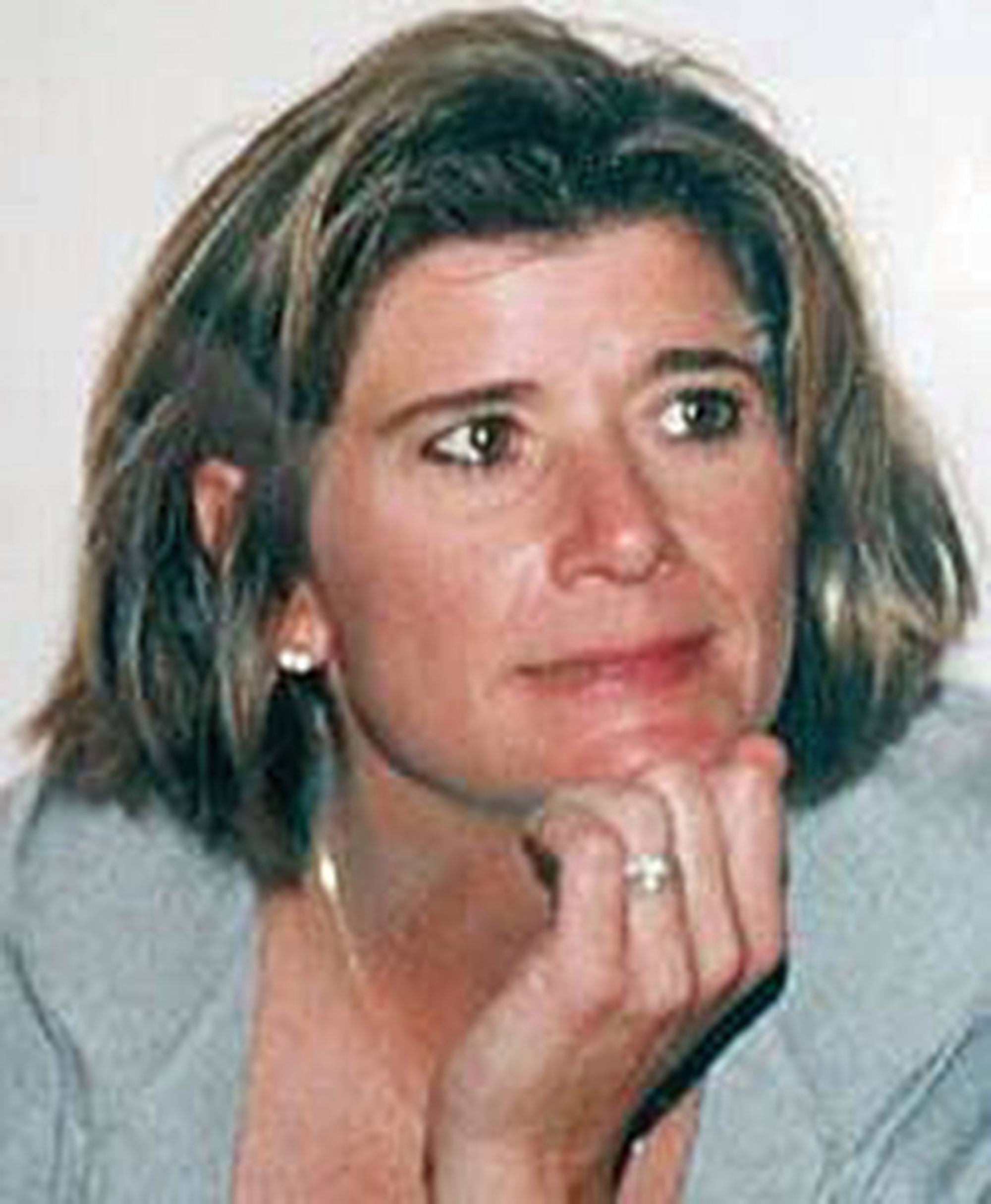
But it wasn’t a joke. Barbara Beach Hamburg, Madison’s 48-year-old mother, had been bludgeoned and stabbed to death, her body hidden under a pile of lawn-furniture cushions outside their Connecticut home.
It was a grisly crime that shocked the seaside town of Madison, CT. But it had turned into a cold case by 2013, when Madison (whose name is a coincidence; he was born in Atlanta) decided to make a documentary for a film school project. That 130 hours of initial footage became the forthcoming “Murder on Middle Beach,” a four-part HBO series directed by Hamburg as he attempts to do what the Madison police force couldn’t: find out who brutally killed his mother, and why.
He didn’t have to look far for suspects, as he uncovered a trove of secrets, resentments and dark legacies in his own family. The logical place to start turned out to be his father, Jeffrey Hamburg.
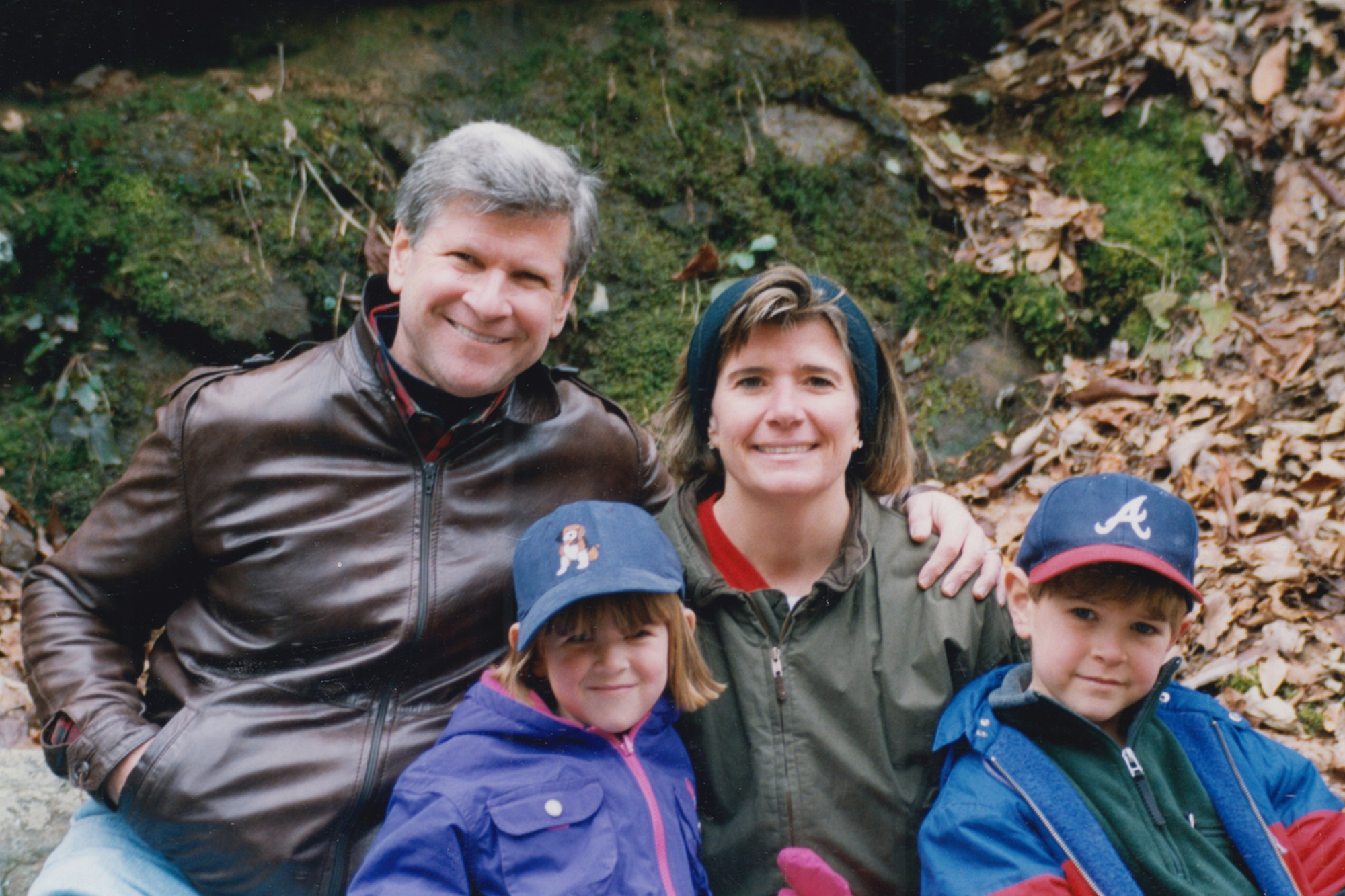
“I started to hear these crazy things about my dad,” said Madison. “I mean, I grew up extremely sheltered. My dad was unrealistically, inexplicably wealthy. He was the CEO of an international energy company, but we didn’t really know what he did. He lived in Prague for years. And Dubai. I always thought maybe he was in the CIA, or something. But I didn’t know at all that my mom was worried about what he did. And then my parents were divorced, and my mother had no money, and I was living with her, and there’s all these problems.”
At the time Barbara was murdered, she was due in court for proceedings related to the divorce; Jeffrey had been ordered to pay a lump sum to his wife or be held in contempt. According to a report at the time in the Hartford Courant, “court records show that Jeffrey Hamburg had been in a precarious financial condition related to a bankruptcy filing in June 2009. At one such proceeding, his ex-wife accused him of raiding his children’s bank accounts.”
An initial police investigation concluded DNA collected from the scene did not match Madison’s father, and Barbara Hamburg’s body was cremated shortly thereafter.
But Jeffrey Hamburg, and his mysterious finances, were just the tip of the iceberg.
“There was so much to learn about my mom’s life, and our community, that I just didn’t know,” said Madison. “It was really overwhelming.”
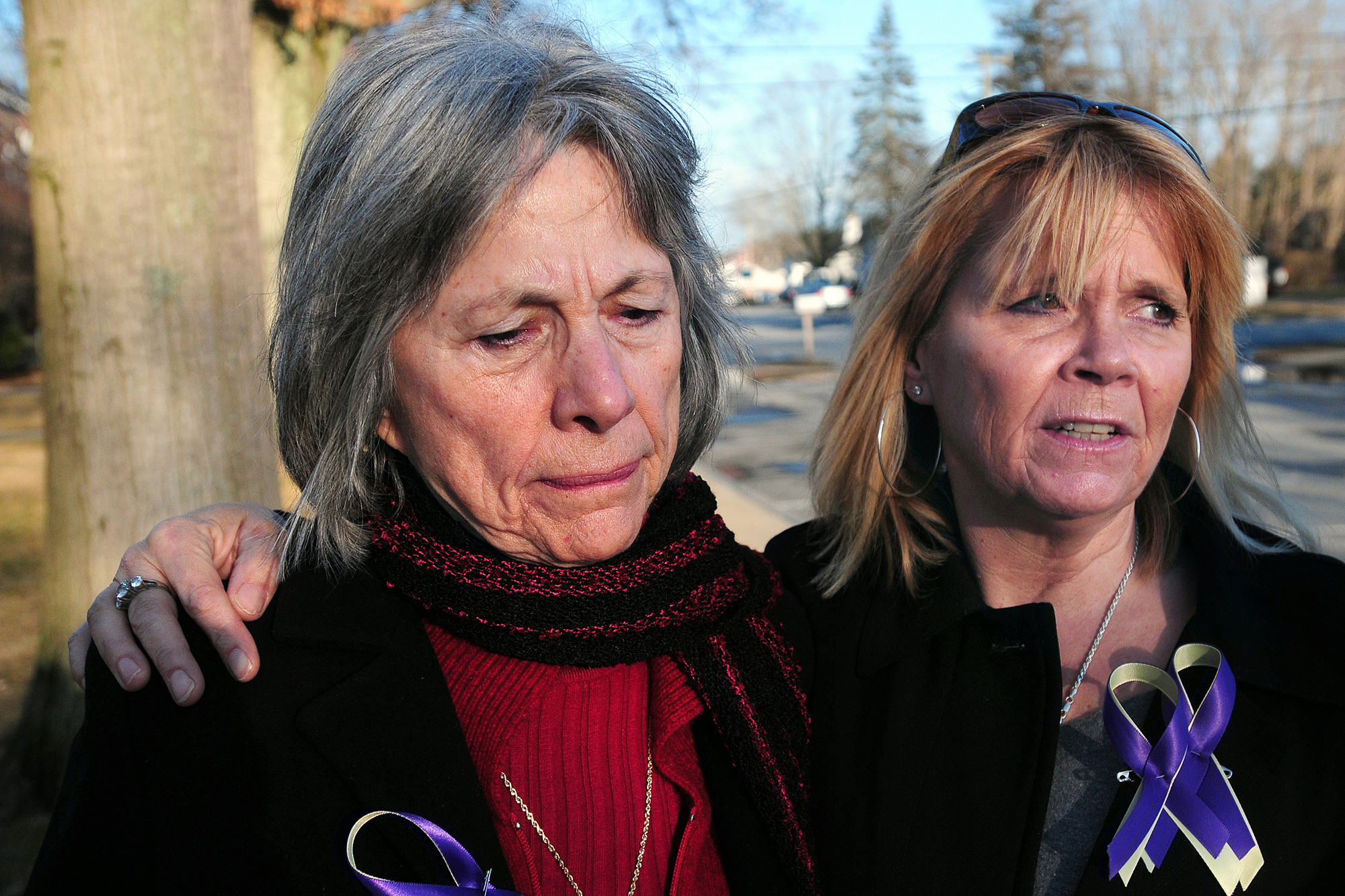
He learned the extent of his mother’s alcoholism, and of the thread of addiction that runs through his entire family. It squared with his own past as a troubled teenager. “I was acting out a lot. I’ve gone to rehab twice,” he said. “My whole family is in recovery. My grandfather [Sandy Beach] is famous in AA, if you can be famous in an anonymous program. He spoke at national conventions. It was kind of a rite of passage for my family.”
Another shadow over the family was a now-defunct group called the Gifting Table, a multilevel marketing scheme which had been billed as a self-help group. It consisted of a periodic women-only gathering, in which new recruits were required to bring a hefty financial “gift” of $5,000 in cash. Modeled after the courses in a dinner party, the money was an “appetizer,” while members who’d been in the group longer moved up to the “dessert” course, where they would reap as much as $40,000 in gifts. As per the pyramid structure, the idea was then for women to break off and start new groups, beginning the cycle again.
Because the Gifting Table scheme began during the recession of 2008, it was described by its main proponents — who included Madison’s great-aunt Jill Platt — as a way for struggling women to pull themselves out of financial peril. Barbara Hamburg, her sister Conway Beach, and Platt were all involved in recruiting women in the area, and Platt eventually went to jail for wire fraud, filing false tax returns and conspiring to defraud the Internal Revenue Service.
At the time Barbara was murdered, she had been on the cusp of receiving a $40,000 bounty, leading some to question if she’d been murdered by someone disgruntled with the system.
Meanwhile, Barbara’s older sister Conway, one of the series’ most colorful characters, comes into focus in Madison’s investigation. A blunt-spoken woman who has struggled with drug abuse and serious illness, she’s shown to have reasons to be considered a suspect — The Post won’t spoil why — and also points the finger at another family member’s possible involvement.
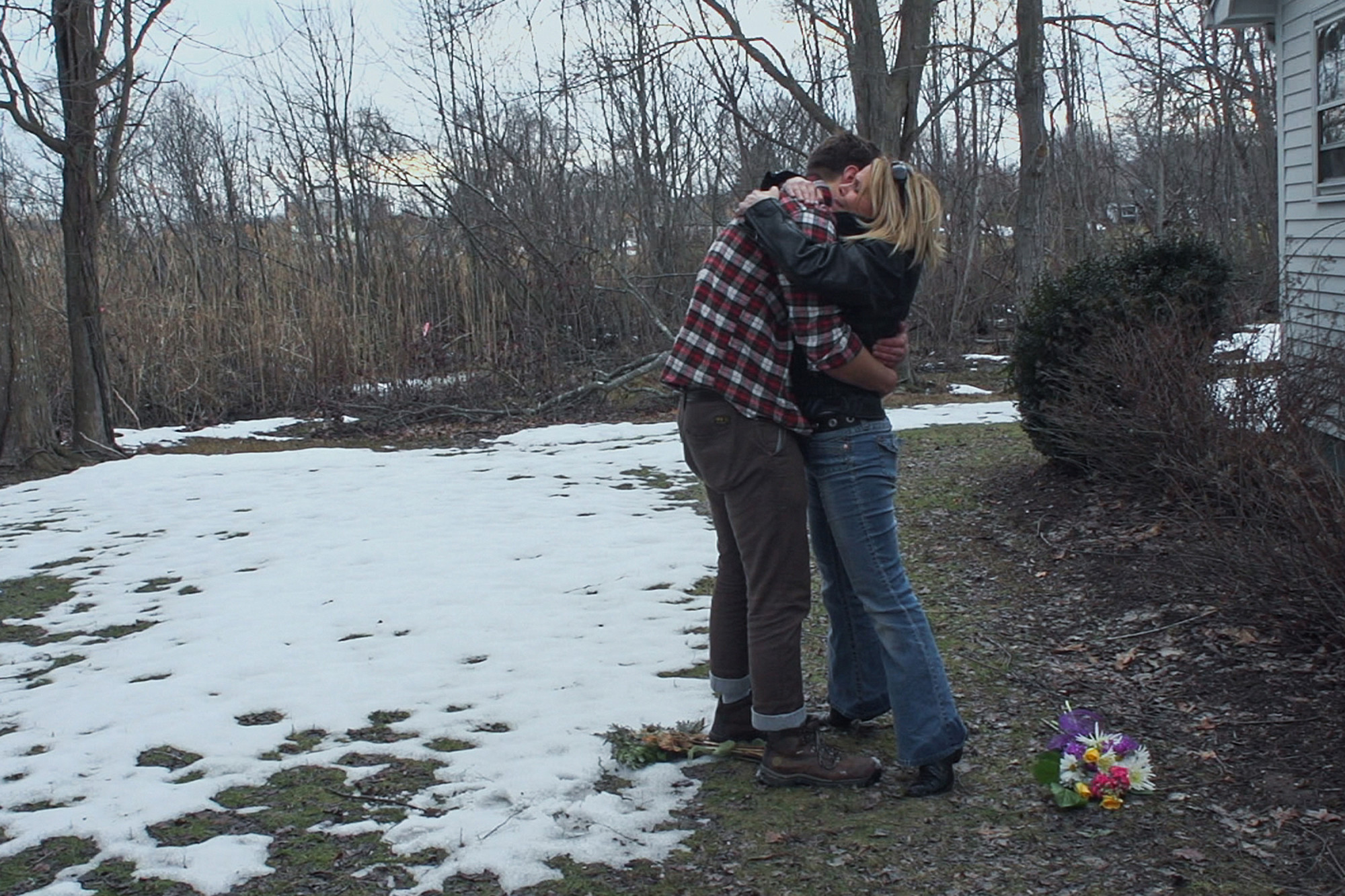
One of the most grueling but necessary parts of the process, said Madison, was asking tough questions of his surviving family. Questions that include querying his own sister and father: “Did you kill my mother?”
The process is difficult to watch, and was part of what so impressed the team who opted to take on the project, said executive producer Neda Armian. “What makes this series so magnetic is the deep, unwavering personal nature of it,” she said. “It’s a journey that you would usually take privately. The courage to do it publicly is something to behold.” A 17-year producing partner of the late director Jonathan Demme, she said Madison’s skills as an introspective fledgling filmmaker would have impressed the Oscar-winning director. “Jonathan would have loved this series. He was such a champion of storytelling that touches on complicated family dynamics,” she said.
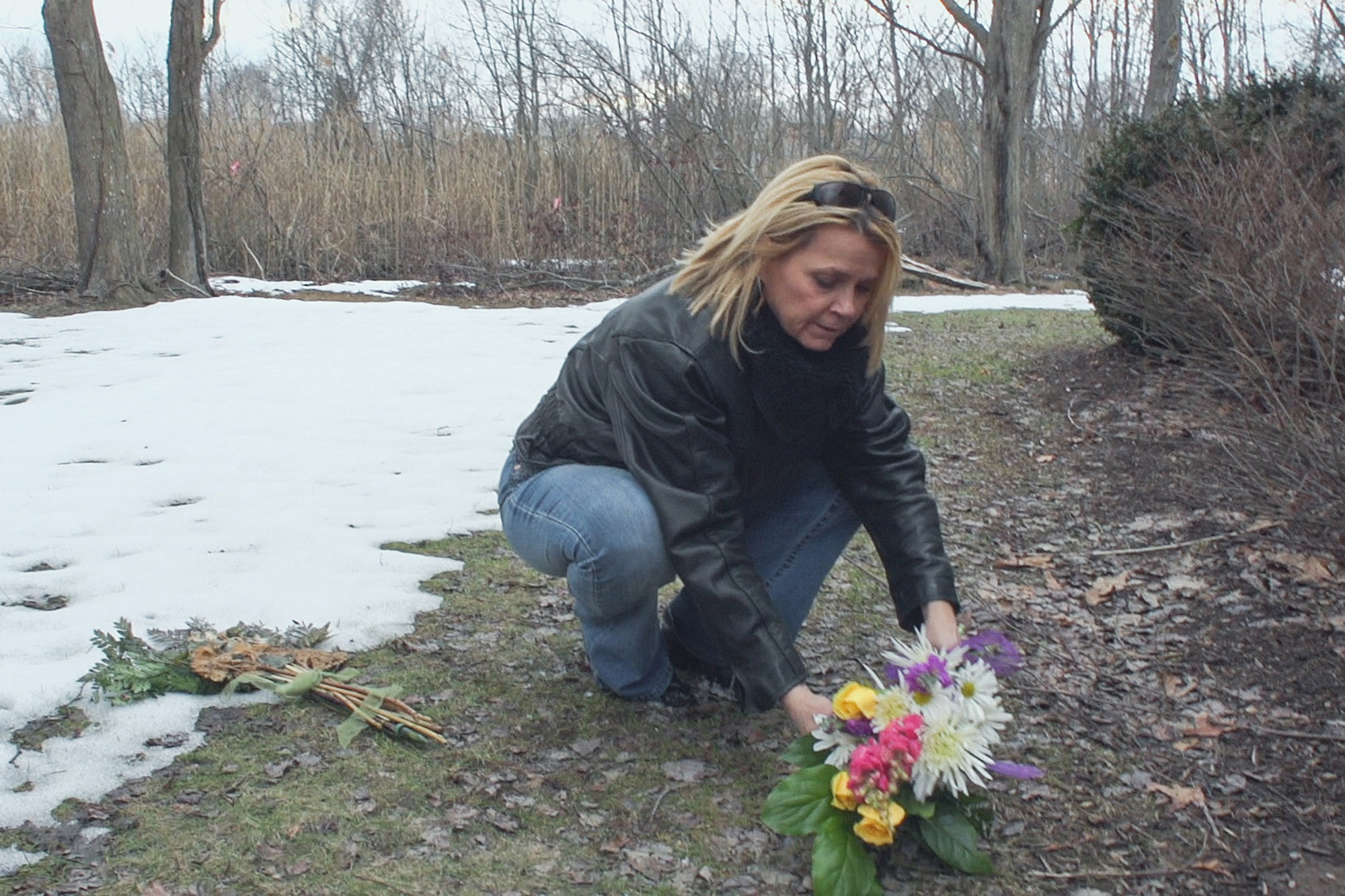
Madison will be the first to admit he didn’t always keep it together, though. “We have hours on the cutting room floor of me just losing it,” he said. “When I set out, I didn’t know what I was getting into. It was just a project for documentary class. But one of my goals became to exonerate my family members. Because there’s this lingering distrust. And if I don’t ask certain questions in the documentary, then those questions are left unasked.”
Not least because of the incompetence of the local police force, whose conversations Madison secretly recorded during their meetings.
“Not to slander them, but Connecticut is one of the worst states for transparency with law enforcement,” he said. “The crime lab there was one of the worst in the country in 2010. They had something like 4,000 backlogged cases. In 2011 they lost their accreditation.”
Through Freedom of Information Act requests, Madison obtains key documents related to his mother’s murder, despite the stalling of the police department, which insists that it’s been moving forward on the case. In one of the episodes, he gets the 911 recording of the call from his sister and aunt. We watch as he listens, with the audio mostly muted; a local news channel was planning to post the audio, he said, and he wanted to hear it before it was made public. “They wanted a comment from me, and my comment was, ‘That’s exploitative of my family’s trauma. I don’t see what benefit it brings, other than selling clicks.”
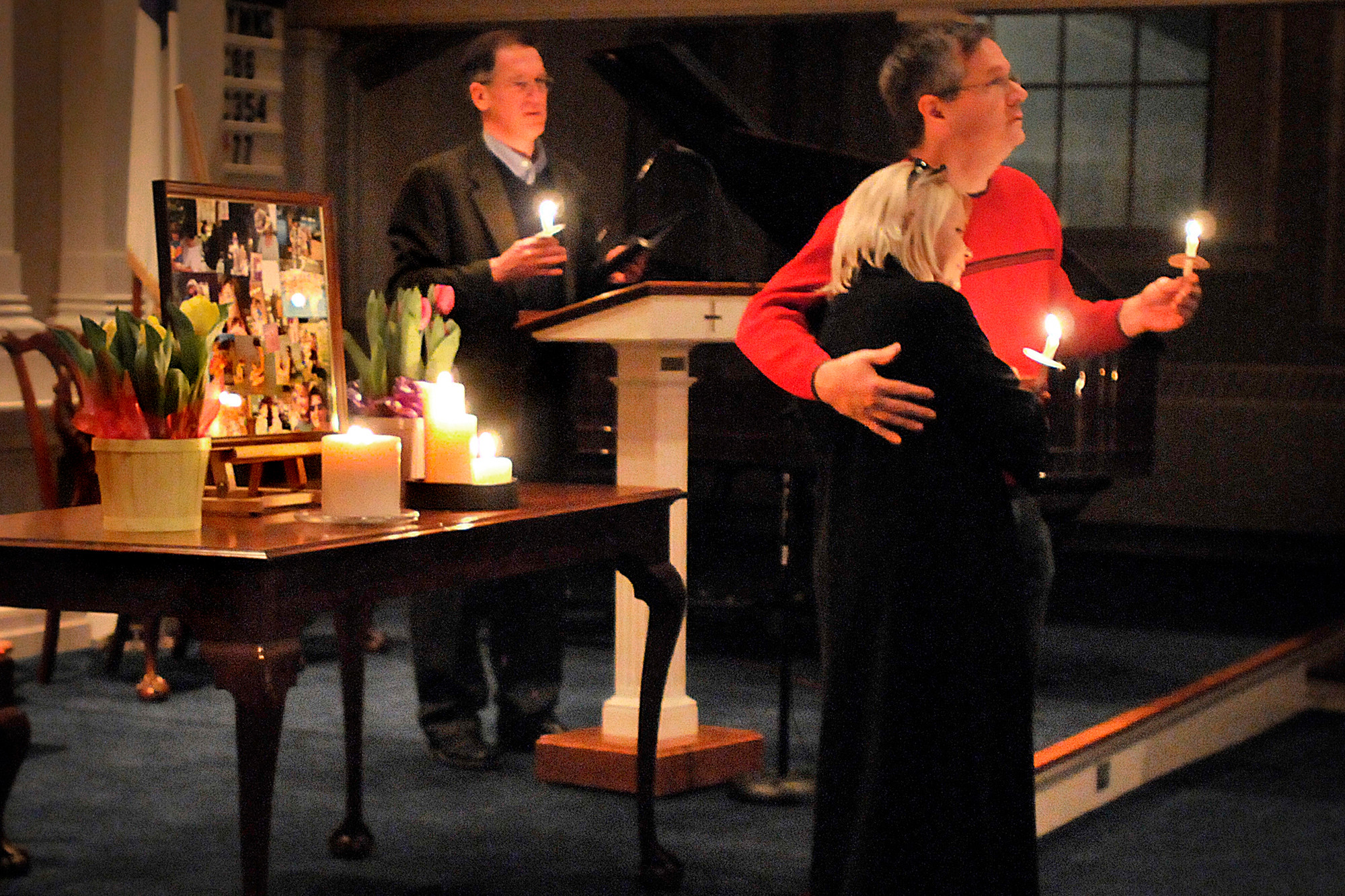
But for Madison, hearing his sister and aunt’s anguish that day was a part of the grieving process. “I didn’t want to dramatize it, but I think there was some sense of finality to listening to them realize she died.”
Madison Hamburg’s investigation also pulls back, in a larger way, to examine the underbelly of his town’s police force — which has been implicated in strange corruption schemes, including lobster-stealing — and of the complicated layers of every family, even the ones who seem picture-perfect, as the Hamburgs once did.
“There’s this aspect of this Stepford Wives-esque shoreline community, where the more you reinforce that everything is okay, the darker what you’re hiding,” said Madison. “That’s the duality of this idyllic New England neighborhood, these things that nobody wants to talk about. I’m not saying it caused my mother’s murder, but I think if people were more honest and open, and not putting on that facade, maybe we would know more. Maybe I wouldn’t be having to do this.”
Madison has set up a tip line, BarbaraHamburgTips.com, in the hopes that viewers will come forward with more information.
“I’m hopeful that maybe Madison’s documentary will jog somebody’s memory about something they saw that day, something they heard or something that someone else told them,” Madison Police Department Capt. Joseph Race told the ShoreLine Times. “Obviously, it’s HBO, it’s going to be national. It could be something that someone told someone in Georgia that all of a sudden breaks this thing wide open.”






















